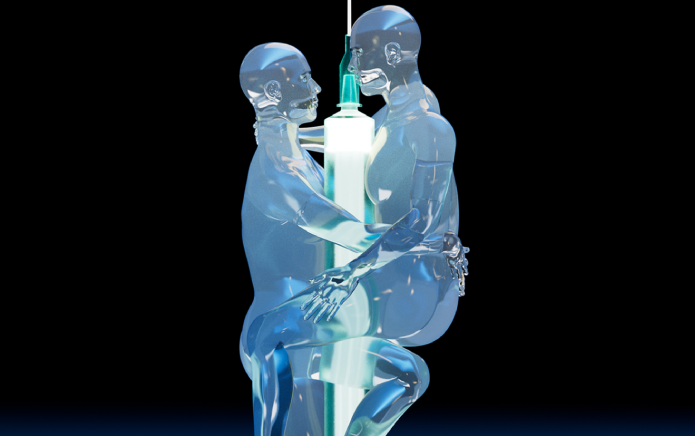
This year, Britain’s battle with the HIV/AIDS epidemic turns 40. Since HIV/AIDS was first diagnosed on 5 June 1981, four decades of activism and change has led to remarkable advances in science and medicine. Now, HIV is a manageable chronic condition and those who are on effective treatment have an undetectable viral load, meaning they – and this needs to be screamed from the rooftops – cannot pass the virus on. However, there’s much more to be done to challenge stigmas and work towards a future where the UK has zero new HIV transmissions. This World AIDS Day, it’s important to commemorate those we lost to HIV/AIDS and think about how we can fight for a more equitable future. Jonathan Blake, Marc Thompson and Jay Hawkridge are three HIV/AIDS activists who are currently starring in Sky Documentaries’ brand new series, Positive. The three-part docu-series, which premieres this World AIDS Day, uses intimate testimonies from some of the earliest HIV patients and real-life heroes to tell the tragedies – and triumphs – of Britain’s 40-year battle with HIV and AIDS. Positive chronicles the prejudice, intolerance and homophobia of Britain at the time of the epidemic, before examining a society that’s increased its understanding of sexual and gender identity.
“It’s a story that has not been told,” Jonathan, 72, tells GAY TIMES on a Zoom call with both Marc and Jay. The activist, and former member of Lesbians and Gays Support the Miners, was one of the first people diagnosed with HIV in the UK, and is one of the country’s oldest living survivors with the illness. “In those early years it was considered to be this ‘gay disease’. Well, viruses don’t choose, they’ll get any host that there is. I just felt that this was a really good opportunity for the story of HIV and AIDS in the UK, and I mean specifically in the UK, because I think it’s important. You know, we are so fortunate that we have a national health service and that makes such a difference with what access we have, in terms of care.” After learning of his diagnosis, where he was told that he only had six months to live, Jonathan attempted suicide out of fear of how HIV would affect him. “I was told this was a terminal diagnosis, but I was told specifically that there would be palliative care when the time came. I mean, at 33 that’s not exactly what you want to hear. What I love about this documentary is that it deals with the whole period. It’s not picking out little bits and pieces. I do hope what people take from it is just how amazing our National Health Service is because without it, I doubt that I would be here. I don’t think any of us would be here.”
Marc, 52, was first diagnosed in November 1986 at 17 years old. Since then, he has used his platform to campaign for LGBTQ+ rights and for Black gay men to be included in the conversation – a conversation that notoriously excluded his community when HIV/AIDS first ravaged LGBTQ+ people in the 80s. “I specifically got involved in this documentary because I’m about making sure that when the story of the epidemic is told, there are diverse voices that are heard because HIV impacts a wide range of communities,” explains Marc. His work as a campaigner started in 1992 when he attended a support centre for people with HIV/AIDS at the Landmark AIDS Centre. Three years later, Marc joined Big Up, a group addressing inadequacies in HIV prevention for Black gay men. “I wanted to ensure that the voices of Black gay men who were impacted were there. I am one of the few Black gay men who live openly with HIV, so it was an opportunity that I wasn’t going to miss out on.” He then jokes: “I saw my lovely neighbour Jonathan being interviewed in the garden, so I bowled over and introduced myself and was like, ‘I’ll have some of that please!’ Also for me, I was very young when I was diagnosed. I’ve lived this journey as a gay man who grew up in the epidemic, so I think I brought a slightly different view to it. Now that I’ve seen Jonathan’s and Jay’s stories, there are so many similarities between the three of us and our experiences.”
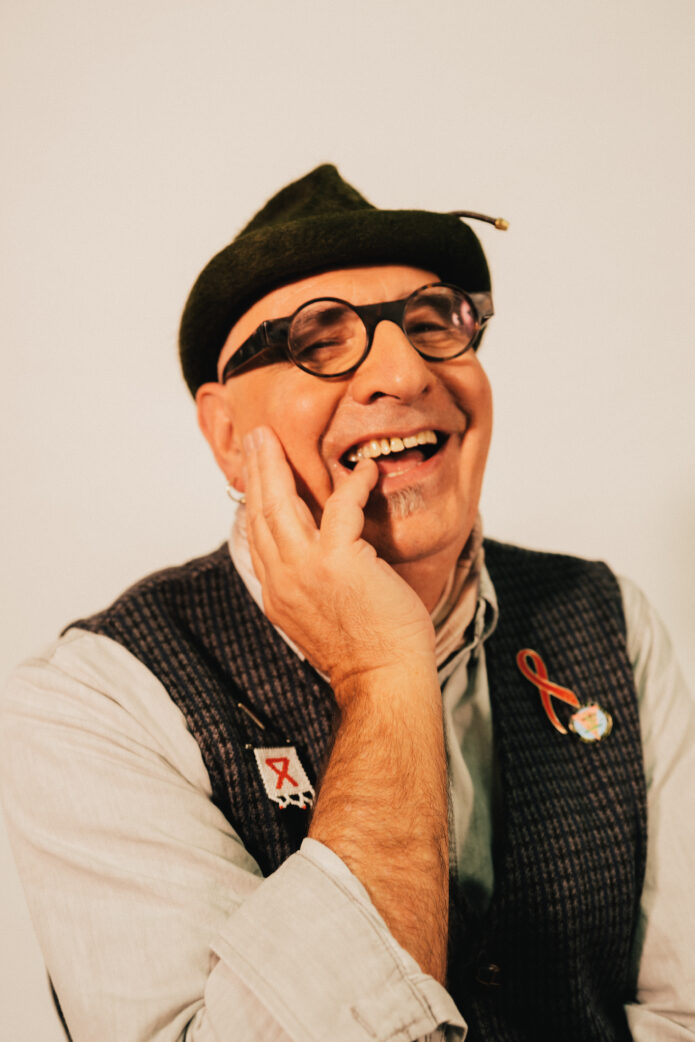
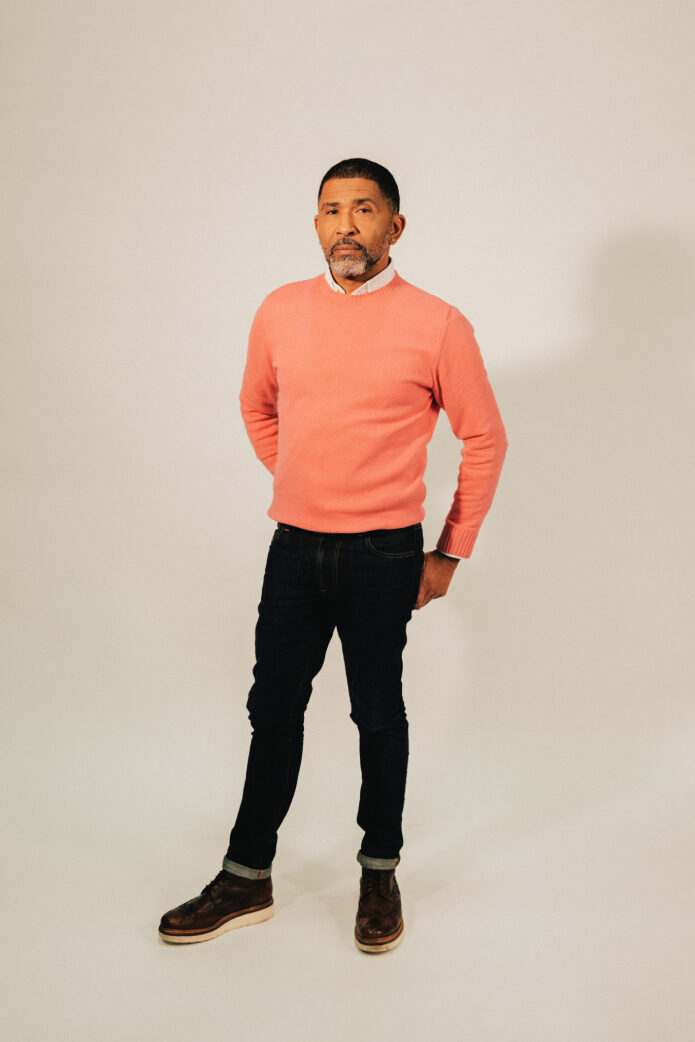
It’s been two years since Jay was diagnosed with HIV. After falling ill in October 2019, Jay, 27, was admitted to hospital with an extreme temperature and loss of consciousness. He became public with his diagnosis in June 2020, and has since amassed a dedicated following on social media platforms such as TikTok and Instagram due to his educational – and accessible – clips on HIV. “I only became public because by the end of the first lockdown, it seemed like a secret I was keeping,” he states. “It was nothing that I was ashamed of. It was something that I understood to a degree and I knew that I shouldn’t judge myself because it can happen to anyone. It led to me downloading TikTok to keep the conversation going, and it got to a point where I started to realise – once it got a bit of actual exposure – that it was more than my immediate close circle who were going to love and support me no matter what. People were more receptive to learning about HIV than I thought they would have been. There is a real need for education out there for, not just people within our community, but for allies of our community who have missed out on decades of vital culture and history. I would have felt selfish if I had said no [to appearing in Positive] because it is another way I can raise awareness.”
While the HIV/AIDS epidemic has been dramatised for various movies and TV shows over the years – more recently in Russell T Davies’ It’s A Sin, which received universal acclaim and resulted in a significant increase in HIV testing when it launched earlier this year – it’s rare for a docu-series to chronicle the entire crisis and “bring it up to date,” says Jay. “Shows like It’s A Sin are wonderful in what they were able to do, but that is looking at HIV through a lens of a couple decades ago. It was needed, but what sets this documentary apart is that it brings HIV up to the present day. Since becoming public with my status, I’ve noticed that a lot of people don’t realise that HIV is still potentially a risk today. It is about having that conversation and opening that gateway into discussion, normalising HIV in this discussion, so that people are educated and protected and therefore feel equipped to: a, deal with HIV; b, protect against HIV; and c, have no stigma towards people living with HIV. You only fear what you don’t know, and if someone says “HIV”, all the information you have is outdated.”
Marc agrees with Jay. “When we look at the historical telling of HIV, some of the communities have been missed out. We talk about the media being homophobic, but we don’t actually put it into bigger context,” he says. Positive places a particular emphasis on the power of the media, particularly tabloids, and how they impacted society and their perception of those living with HIV/AIDS. Newspapers led with headlines such as “Gay Plague” and “My Doomed Son’s Gay Plague Agony”, which ignited a moral panic amongst Brits. Garry Bushell, who worked at The Sun between 1985 and 2001, says in the documentary that the epidemic was at the forefront of headlines because of its “perfect combination” of “sex” and “death”. White gay men were also at the forefront of all newspapers and messaging, which meant Black gay men didn’t think HIV/AIDS applied to them. Marc adds: “The country was deeply homophobic, the government was deeply homophobic and nobody cared. As Jonathan pointed out so beautifully in the documentary, nobody cared about gay lives. That was an absolute fact. It’s great to make comparisons with COVID because it took nearly five or six years of [HIV/AIDS] taking a hold for anyone to give a shit, and that’s because of who it was affecting. That’s one thing that we have to remember – that nobody cared.” Marc also reflects on how the media ignored the “thousands of volunteers, men and women, queer men and women and people of colour” who rallied together to comfort HIV positive people at their bedsides, hand out condom packs and make sure they were fed. “We changed volunteering. We changed fundraising because nobody cared. Those are the people we have to remember, because without them, Jonathan and I wouldn’t be here. Jay may not be here to tell his story, either. They are unsung heroes.”
After 40 years of us being made to feel infectious and like the devil, and that we were responsible for this global epidemic, I want the narrative to be changed to say that we played a part in ending it.
When we ask each all three activists how they think mainstream media has evolved since since the “Gay Plague” made national headlines, Jonathan points out that the crisis became a “forgotten epidemic” before shows such as It’s A Sin reignited the conversation. “Section 28 completely undermined sex education for any gay or lesbian in schools,” he says. “It was forbidden to talk about homosexuality or “pretend family relationships” as [Margaret] Thatcher would have it. That was so damaging, in that kids were not told about the ways that they could protect themselves from HIV because it couldn’t be talked about. It was still considered to be, wrongly, this gay plague.” Marc says: “I also think we’ve been a victim of our own success. HIV is now a manageable condition. Anybody who gets diagnosed takes a pill, goes undetectable and that’s it. Because of that, we become invisible. You don’t see people who are sick, who are dying – not overwhelmingly. Most of us are on treatment and undetectable therefore it’s not a media story. We do appear in the media occasionally, but very often it’s when: firstly, a celebrity comes out – and those celebrities are usually of a typical type which again reinforces the narrative of who is affected by HIV; secondly, and this isn’t to shoot the documentary in the foot, but what we keep seeing is a retelling of the epidemic. We don’t necessarily see HIV presented.” However, Marc does add that soap operas are starting to integrate positive depictions of HIV positive characters, such as Emmerdale’s recent storyline with newcomer Ethan Anderson. “But, it’s drip drip. What happens as a result of that is that younger people then think HIV doesn’t affect them, and therefore they base their risk on that. We have piss poor sexual relationship education in schools, which isn’t equpping young people with how to prevent HIV and even having healthy relationships.”
Conversation turns to the lack of mental health services for HIV positive people. Of course, mental health services are severely lacking in all areas – it was recently revealed that an estimated eight million people in England with mental health issues cannot get specialist help because they are not considered “sick enough” – but for HIV positive people, Marc again puts this down to outsiders thinking, ‘You’re taking one pill a day, you’re okay!’ He tells us: “There’s not enough services out there, particularly for those of us who are ageing with HIV, so austerity, and again this is partly government cuts and the change in nature of the epidemic. We already know the queer community is ageist and they kick people out once they hit 30, but there is really piss poor service prevision for gay men in this country. If a young gay man is coming out today, even if he’s had sexual relationships education at school, his education and support is probably going to be on Grindr. Mental health and support services across the board for queer people are being decimated and therefore, obviously, HIV services as well.” Marc says some of the most notable HIV organisations and charities don’t even provide services for older people such as himself and Jonathan. “Where is the peer support?” he asks. “Where is the newly-diagnosed workshop? Where are all these things? They’ve gone.”
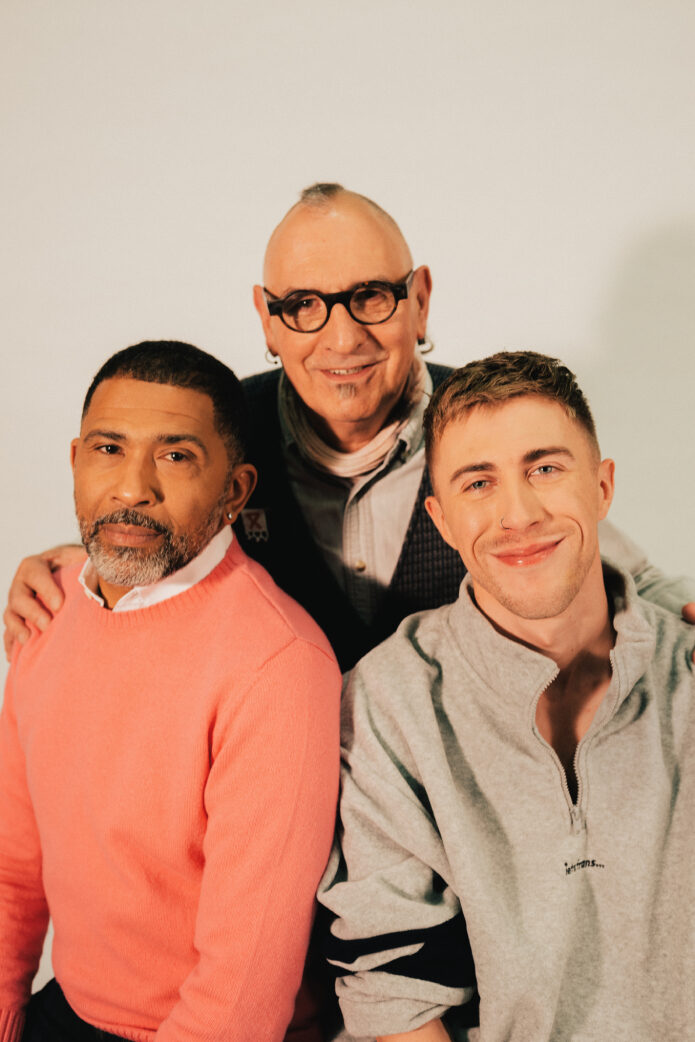
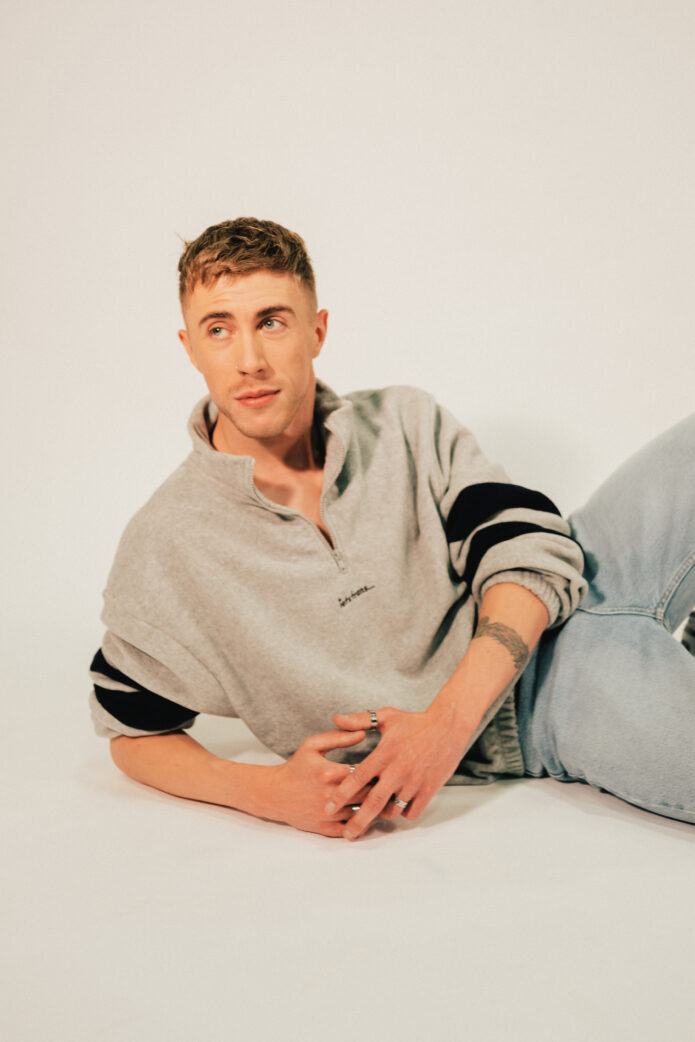
For Jonathan, Marc and Jay, it’s more important than ever to increase messaging around PrEP (pre-exposure prophylaxis), a daily course of antiretroviral drugs (ARVs) taken by HIV-negative people to protect themselves from infection. In 2015, Marc founded PrEPster, an organisation that pushed for the drug to be available on the NHS. Although PrEP became free on the NHS in April 2020, Jonathan says the NHS is “not putting out messaging” about its availability. “But, Marc and his site Team PrEPster are brilliant in that they’re putting out information and trying to offer it to anybody,” he says. “PrEP is available and it’s really important that all communities get it. It gets back to this whole thing: this nation does not deal well with sex. Sex workers should be offered it. It drives me mad that this country seems to be so blinkered around sex! It should be on billboards.” While Marc has spent years of his career advocating for the use of PrEP, he says it’s important to not “underestimate the role” that HIV positive people have had in decreasing the number of cases in the country. “As much as I am a PrEP activist and, like Jonathan said, PrEP on billboards, I also want this narrative of U=U and the role that positive people have played to be shouted from the rooftops. It challenged HIV stigma. It gets more people tested. And that’s what is going to end HIV, not simply PrEP. After 40 years of us being made to feel infectious and like the devil, and that we were responsible for this global epidemic, I want the narrative to be changed to say that we played a part in ending it.”
Last year, Dr Noel Gill – Head of STIs and HIV at Public Health England – declared that the country is “on our way to reaching the goal of eliminating HIV transmission by 2030”, which is acknowledged by Jonathan in the documentary. “It’s incredibly important that people continue to speak out about HIV, encourage testing and normalise testing,” Jonathan asks when we ask how we can make zero HIV transmissions by 2030 a reality. “You go and get a COVID test and there is no stigma attached to that. The only way it will be dealt with is documentaries like this.” Jay, who stresses the fact that HIV positive people are undetectable and “statistically the safest people you can sleep with”, says normalising the discussion surrounding HIV will make positive people feel more confident and less anxious about disclosing their status. “It would also increase prevention,” he says. “If people are educated about HIV, they’re going to understand that it’s still here and that, today, it is incredibly manageable.” There’s no stigma when people get tested for COVID, adds Marc, so there should still be no stigma for a HIV test. “It’s going to be an ongoing battle, it’s not going away. Fight the power, basically!”
Positive will premiere on Sky Documentaries and streaming service NOW on World AIDS Day, 1 December at 9pm.
To learn more about HIV/AIDS, head to Terrence Higgins Trust’s website.
